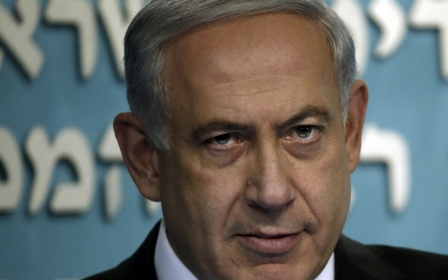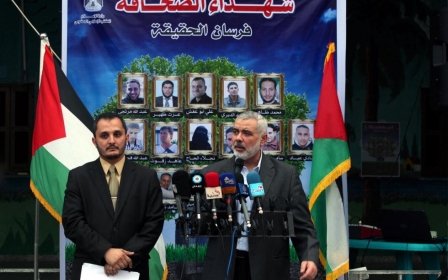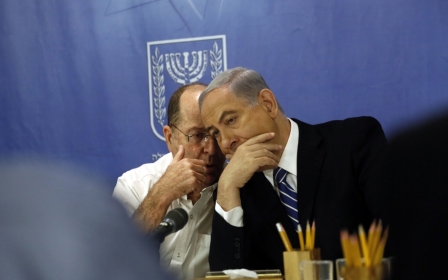Hamas: new Israeli 'aggression' unlikely soon

A leader of Palestinian movement Hamas on Monday ruled out the possibility of an imminent Israeli aggression on the Gaza Strip, saying his movement had enough deterrence power to prevent Israel from thinking of this aggression.
"Israel wanted to reach a cease-fire in Gaza by all means," Mahmoud al-Zahar, a member of the political office of Hamas, said. "Even with this, we never trust the enemy and have what can deter it in case it thinks of launching an aggression against us," he added in an interview with the pro-Hamas Al-Quds Channel.
Israel's just-ended 51-day offensive against the Gaza Strip left some 2,147 Gazans dead and 11,000 injured – the vast majority of them civilians – while partially or completely destroying thousands of residential structures across the territory.
The offensive, initially launched with the stated aim of ending rocket fire from Gaza, finally ended with the announcement last week of an open-ended cease-fire.
According to Israeli figures, 67 Israeli soldiers and five civilians were killed over the course of the operation – the highest military death toll suffered by Israel since it lost 119 troops in its 2006 war on Lebanon.
Zahar said his movement would swap Israeli soldiers captured by it during Israel's offensive on the Gaza Strip for Palestinians detained in Israeli jails.
Qassam Brigades, Hamas' military arm, said on July 20 that it captured an Israeli soldier during an operation in eastern Gaza City. The brigades did not announce the capture of any more soldiers during the offensive.
Israeli army changes proof of Gaza failure
Hamas said Monday that a recent move by the Israeli military to replace the chief of its Gaza Division had confirmed Israel's "failure" in its recently-ended war on the Gaza Strip.
"This failure has been accompanied by a number of disciplinary measures being taken against Israeli army generals who came up short when confronting the Palestinian resistance in Gaza," Hamas spokesman Sami Abu Zuhri told Anadolu Agency.
Hebrew-language newspapers on Monday reported an Israeli army decision to replace Gaza Division Commander Mickey Edelstein.
But an Israeli military source said Edelstein was supposed to leave his post before the Gaza operation but he just waited because of the operation.
"His new post is the commander of the forces in Sinai border and commander of the training ground forces there," the source told AA. "It was just a regular change, nothing more," the source added.
Some Israeli military sources said Sunday that the army planned to investigate two incidents that occurred during Israeli onslaughts on the city of Rafah in the southern Gaza Strip.
The sources told Israeli Radio that the investigation would examine, among other things, the capture of an Israeli soldier during the attacks.
Netanyahu not to send negotiators to Cairo
Israeli Prime Minister Benjamin Netanyahu does not plan to send negotiators to Egyptian capital Cairo to discuss a permanent cease-fire in the Gaza Strip in the light of a cease-fire deal that was hammered out with the Palestinians on August 26, an Israeli channel has said.
Netanyahu said during a closed meeting that he would not send the negotiators to Cairo to resume permanent cease-fire talks with the Palestinians, a Channel 2 analyst said late on Monday.
He said the Israeli premier talked during the meeting about a defeat he would inflict on Hamas by not succumbing to any of the demands it made during the indirect cease-fire negotiations earlier.
Channel 2 said, however, that Netanyahu did not mention all realities as far as what it called the "concessions" he offered the Palestinians, especially when it comes to the reopening of border crossings and fishing off the coast of Gaza, are concerned.
Middle East Eye propose une couverture et une analyse indépendantes et incomparables du Moyen-Orient, de l’Afrique du Nord et d’autres régions du monde. Pour en savoir plus sur la reprise de ce contenu et les frais qui s’appliquent, veuillez remplir ce formulaire [en anglais]. Pour en savoir plus sur MEE, cliquez ici [en anglais].




